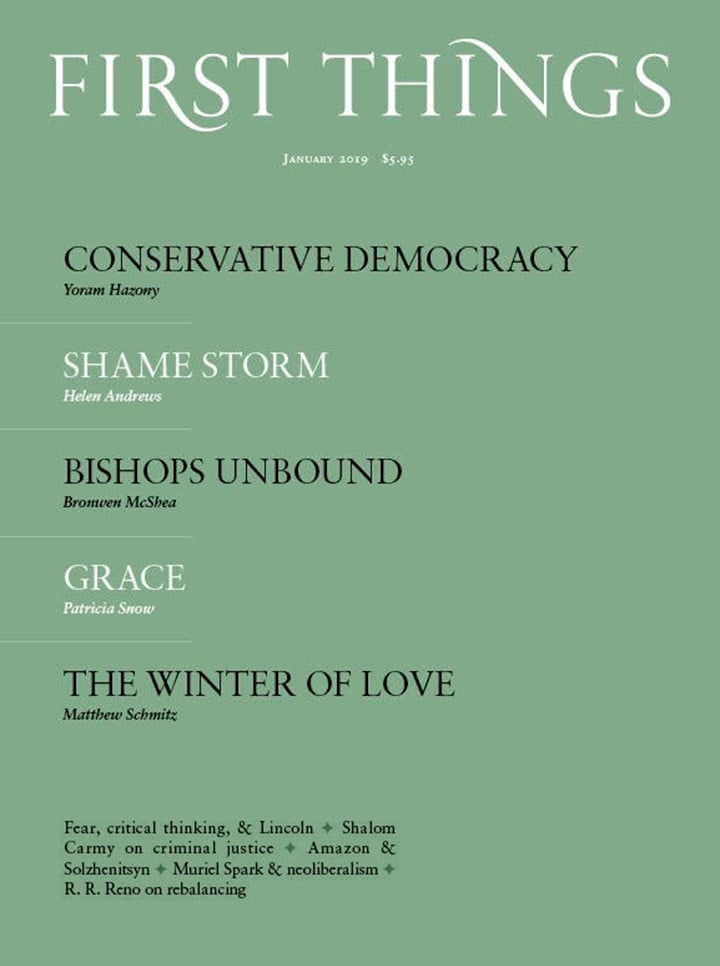The Best American Poetry 2018
edited by dana gioia
scribner, 240 pages, $18.99
American poetry lost three greats last year: John Ashbery, Richard Wilbur, and Donald Hall. But it also welcomed A. R. Ammons’s “Finishing Up,” A. E. Stallings’s “Pencil,” and Anne Stevenson’s “How Poems Arrive”—verses from The Best American Poetry 2018 that prove poetry in America is far from moribund. As Dana Gioia writes in the introduction to the anthology: “The poetry scene isn’t a cemetery; it’s a crowded, noisy maternity ward.”
A “new formalist” himself, Gioia has favored traditional forms throughout his career. Here, though, he aims to represent American poetry’s diversity, and so the sonnet appears alongside free verse, blank verse, prose-poems, a gorgeous terza rima, and pieces partly in Chinese script.
The desire to improve the nation through art drives many of the writers’ poetics of identity and place. Terrance Hayes’s much-discussed “American Sonnet for My Past and Future Assassin” engages in politics most directly, examining the black community within the American political body. Unfortunately, it devolves into an anthem for “poetry weirdos & worriers, warriors, / Poetry whiners & winos” perhaps better suited for YouTube.
But like all of American life in 2018, the possibilities for poetry are wide open. “We have now decisively entered the Cole Porter period of American poetry,” Gioia writes. “Anything goes.”
—Hannah Niemeier
Why Should the Devil Have All the Good Music?:
Larry Norman and the Perils of Christian Rock
by gregory thornbury
convergent books, 304 pages, $26
Larry Norman, father of both the Jesus movement and Christian rock and roll, considered psychedelic music his platform for evangelism. After launching his songwriting and performance career with People! in 1966, Norman began mixing contemporary sounds with liberal Protestant lyrics for a successful thirty-eight-year-long run. Playing on bills with artists and bands such as Jimi Hendrix, Van Morrison, The Who, Johnny Cash, and Kris Kristofferson, Norman filled secular venues with mentions of Jesus.
But his close contact with cultural icons, coupled with a nearly bipolar personality and contentious relationships, render him controversial—both a hero and antihero of Evangelical Protestantism. Thornbury’s references to Norman’s letters and journal entries reveal that away from the lights, fog machines, and instruments, Norman found it difficult to work with anyone but himself. This led to failed marriages and unstable record deals. Evangelical but not overbearing, church-supporting but not churchgoing, Norman represents the complicated world of culturally Christian music. Why Should the Devil Have All the Good Music? is worth reading for anyone considering the Christian artist’s role in popular culture.
—Justin Brendel
Goodbye, Childless Elites
The U.S. birthrate has declined to record lows in recent years, well below population replacement rates. So…
Postliberalism and Theology
After my musings about postliberalism went to the press last month (“What Does “Postliberalism” Mean?”, January 2026),…
In the Footsteps of Aeneas
Gian Lorenzo Bernini had only just turned twenty when he finished his sculpture of Aeneas, the mythical…


